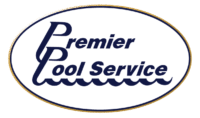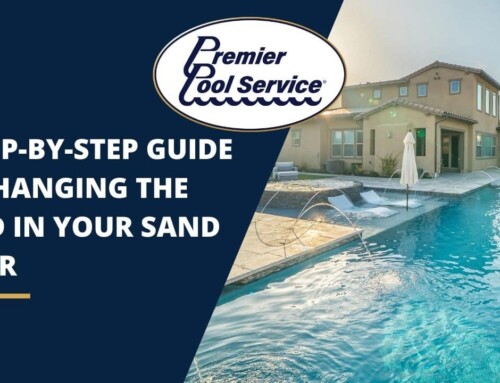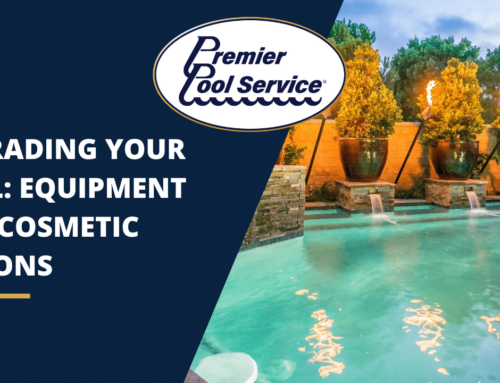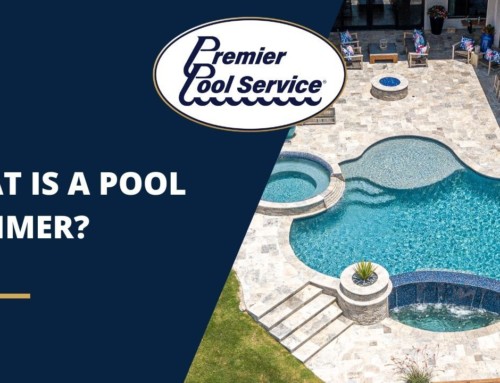How to Choose the Best Pump for Your Pool
The pool pump is the heart of your pool’s circulation system. It pumps cleaning chemicals throughout the volume of your pool while filtering out impurities. When it’s running well, it’s probably the last thing on your mind, but when it’s on the fritz, it can bring swim time to a halt.
An efficient pool pump filters the entirety of your pool several times a day without you needing to lift a finger. It should go without saying, but the higher quality the pump, the less time you have to spend worrying about it.
It’s also essential to get the right pump for the type of pool you have. There are many factors to consider when choosing a new pool pump, and we’ll cover them all for you below.
Types of Pool Pumps
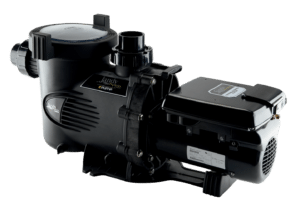
Single-Speed
Just like it says in the title, a single-speed pump runs at one continuous speed, and it’s made to run about eight hours a day. The entire volume of your swimming pool should circulate through your pump once per day.
Dual-Speed
With a dual-pump motor, you can raise the speed when your pool is getting used more regularly and thus needs more filtration. Or, you can switch to a lower speed during times of infrequent use. Dual-speed pumps cost more than a single-speed, but they also save you more than 50 percent on energy costs and extend the motor’s life.
Variable-Speed
Variable Speed-pumps give you a full range of speeds to choose from, which allows you to make micro-adjustments for optimal cleaning and efficiency. You can program these pumps to run at different rates at different times throughout the day.
Factors to Consider When Choosing the Best Pool Pump
Pool pumps aren’t a one-size-fits-all deal. You need to consider many factors, such as your pool size, horsepower, maintenance, and more.
Pool Size
The size of your pool dictates the size of your pool pump. A pump’s flow rate is how many gallons per minute it can cycle through its systems. Depending on how many gallons of water your pool holds, you want a pump that can turn over your entire pool at least once per day. Twice is preferred.
Material
Your pool pump is outdoors equipment that runs for at least eight hours a day. The motor will need to be durable stainless steel with built-in fans to keep it cool while running. And it should be housed in high-grade plastic that can withstand cleaning chemicals.
Horsepower
The size of your plumbing, the fittings, the filter, and the elevation of your pump contribute to head resistance, which decreases your flow rate. For this reason, you need to consider more than horsepower when figuring out the flow rate of a given system.
Forty feet is the average head resistance of a pool system. A pump that moves 100-gallons a minute can only drive 50 percent of that. Depending on your pool’s size, pumps only range from 0.5 horsepower to 2-horsepower pumps for larger pools.
If your existing pump is located more than 40 feet away from the pool or at an elevation of lower than three feet beneath the pool, then you’ll have greater head resistance. In any case, it’s wise to consult a Premier professional who will gladly calculate what size pump you need for your pool.
Filter Compatibility
There are three kinds of filters: cartridge, sand, and DE. Most pumps will work with all filter types, but always double-check your pump’s compatibility before purchasing filters. Also, check the flow rate of the filter you decide to use. Going over the filter’s maximum flow rate with the speed of your pump can damage it.
A more energy-efficient pump will cost more, but it will also save you money in the long run. That’s my Premier always recommends a variable-speed pump.
Don’t go over the maximum horsepower you need for your pool, or you’re just paying extra for power you don’t need. Noise level is also something you should think about. For a more quiet pump, you’ll want one with a fully enclosed motor.
Choosing the Best Pump for Your Pool
Lastly, you can choose the perfect pump and have it all be for nothing if you don’t practice regular maintenance.
- Clean the filter regularly. Some pumps have a bigger basket so that you can check it less frequently, but checking once a week is a good habit to build.
- Never cover your pump, or you’ll cause it to overheat. It’s also wise not to plant any trees or bushes around it.
- During extended times of non-use, like winter, cover your pump and motor to keep it as clean as possible.
Contact your local Premier Pool Service today and ask for their recommendations on a good pump for your swimming pool.
